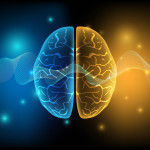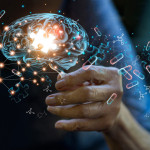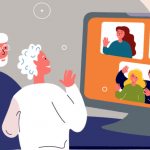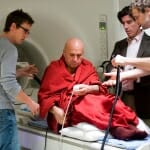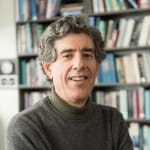Tag Center for Healthy Minds
Study finds mindfulness training may not be enough to increase eco-friendliness
The innovative study marks the first time researchers have conducted a randomized controlled trial to test whether a direct relationship exists between meditation and eco-friendly attitudes and behaviors. Read More
UW–Madison to launch novel research on suicide prevention and well-being
With up to $14 million in federal funding, the Center for Healthy Minds and the Wisconsin Institute for Sleep and Consciousness will investigate how complementary neuroscience and meditation-based interventions could target and repair the areas of the brain that control emotional regulation and cognitive flexibility. Read More
Feeling like Barbie? Here are tips for finding purpose in the real world, based on science
In this summer's blockbuster movie of the same name, Barbie stares down an existential crisis. For humans in the real world, UW's Center for Healthy Minds has some well-tested guidance, along with a free app, for navigating life's challenges and cultivating well-being. Read More
Center for Healthy Minds at UW–Madison to launch research on connection between asthma and Alzheimer’s disease
An interdisciplinary team of researchers will investigate the links between systemic inflammation and inflammation in the brain. Read More
For stressed-out grad students, mindfulness makes big difference
Cultivated through practices such as meditation, yoga or prayer, mindfulness centers around being in the present moment in an open, non-judgmental, curious, accepting way. Read More
Following pandemic, educators are not all right but meditation could ease burden
UW's Center for Healthy Minds has found that COVID-19's upheaval of K-12 schooling took its toll on educators and staff, but a meditation app showed promise for relieving symptoms of anxiety and depression. Read More
Students of innovative course report significantly improved mental health and flourishing
Students enrolled in an experimental course called The of Art and Science of Human Flourishing demonstrated improved mental health and flourishing, according to researchers at the UW–Madison Center for Healthy Minds and collaborators. Read More
Research network to measure and promote emotional well-being
"This network is predicated on the idea that ... well-being is plastic and something we can modify,” says Richard Davidson, director of the UW's Center for Healthy Minds. Read More
Virtual events explore science of well-being, feature new insights from Dalai Lama
“The World We Make 2020” is a weeklong series by UW–Madison's Center for Healthy Minds. Experts will discuss topics including the neuroscience of the mind-body connection, and workplace well-being for educators. Read More
Dalai Lama and UW expert share message of hope, determination, and “education of the mind”
Humanity has an opportunity to transform negative emotions like fear and anxiety into determination and compassion for others, the Dalai Lama said in a recent video conversation that included Richard Davidson, UW–Madison professor and founder of the Center for Healthy Minds. Read More
Mindfulness video game changes areas of the brain associated with attention
The game was designed for middle schoolers and requires them to count their breaths by tapping a touch screen to advance through relaxing landscapes such as ancient Greek ruins and outer space. Read More
New Faculty Focus: Simon Goldberg
"My work focuses broadly on finding ways to promote wellbeing and reduce suffering, which certainly relates to the health and wellbeing of residents of Wisconsin." Read More
A video game can change the brain, may improve empathy in middle schoolers
In the experimental game, a robot crash lands on an alien planet. In order to rebuild the spaceship, players must, as the robot, build rapport with the aliens by deciphering their emotions. Read More
Meditation affects brain networks differently in long-term meditators and novices
UW-Madison researchers examined brain activity in non-meditators, new meditators, and long-term meditators, and they discovered differences in emotion networks of the brain among these groups. Read More
New approaches in neuroscience show it’s not all in your head
“How we experience the world affects us in more ways than we previously thought,” says Richard Davidson, a professor of psychology and psychiatry at UW–Madison and director of the Center for Healthy Minds. Read More


